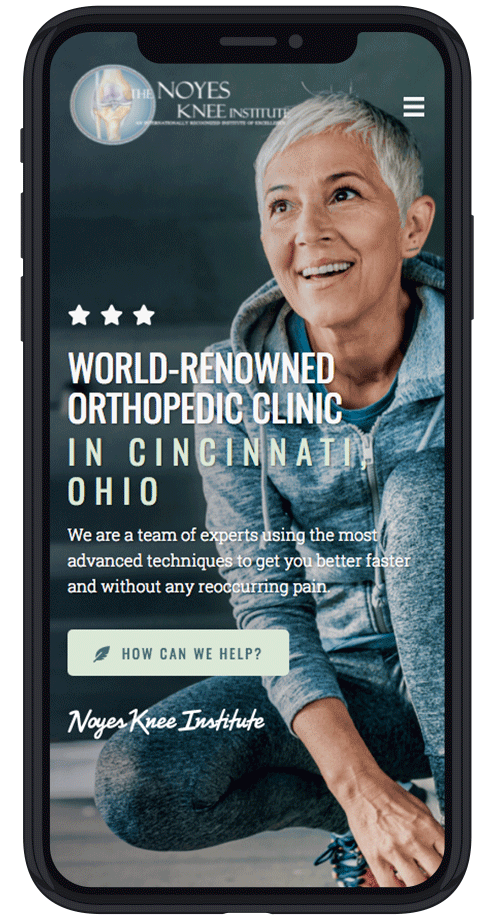Published On
Category
Our orthopedic knee surgeon can help you with injuries, arthritis, or other disorders. The surgeon may offer body composition techniques, nutrition, and rest/recovery for the healing process. Here are how these elements may affect the before and after of your knee surgery:
What Is Body Composition?
Body composition, the ratio of muscle, bone, fat, and other tissues in the body, plays a significant role in both the operation and recovery phases of knee surgery. Achieving and maintaining a healthy body composition before surgery enhances the overall success of the procedure. It also helps contribute to a smoother recovery.
Individuals with suitable body composition may experience better surgical outcomes in the pre-operative stage because well-developed muscles support the knee joint. This reduces the strain around the surgical site and helps rehabilitation. Maintaining a healthy weight may reduce the risk of complications during and after surgery.
A body with a balanced composition tends to respond more efficiently to rehabilitation exercises. This can assist in restoring the functions of the knee after surgery. Knee surgeons have patients engage in targeted exercises that strengthen the surrounding muscles. This helps stabilize the joint and prevents stress on the area.
Consult with a physical therapist or a fitness professional before surgery. They provide specific guidance on exercises focusing on improving body composition, such as strength training, flexibility exercises, and cardiovascular activities.
What Is the Role of Nutrition in Knee Surgery?
A well-balanced diet helps enhance the body’s ability to heal. It strengthens the immune system and promotes overall well-being before and after knee surgery. Focusing on a nutrient-rich diet is beneficial pre-operatively, as protein intake is significant for muscle protection and repair. Patients can eat lean proteins such as poultry, fish, beans, and tofu. This contributes to a healthier body composition, which assists in pre-operative preparation.
During the post-operative phase, nutrition becomes even more significant as the body works to repair tissues and reduce inflammation. Nutrients like vitamin C, zinc, and omega-3 fatty acids help with their anti-inflammatory properties, which help support the healing process. To provide these beneficial nutrients, try including a variety of fruits, vegetables, whole grains, and fish in the diet.
Proper nutrition also includes proper hydration, which helps transport nutrients, facilitates waste elimination, and maintains overall bodily functions. It is particularly beneficial during the recovery period, as dehydration may slow down the healing process and exacerbate post-operative discomfort. Consult with a nutritionist or dietitian before and after surgery. It helps individuals create personalized meal plans tailored to their needs and recovery goals.
What Is the Significance of Rest and Recovery?
Prioritizing adequate rest and adopting healthy recovery practices can significantly impact recovery before and after the knee procedure. A well-rested body is better equipped to handle the physical stress of the procedure pre-operatively. It minimizes the risk of complications during surgery and in the recovery stages. Establish a regular sleep routine, practice relaxation techniques, and manage stress levels.
Following surgery, the body requires time to heal, and pushing too hard or too soon might slow recovery. While you should engage in prescribed rehabilitation exercises, suitable rest periods between sessions prevent complications post-surgery.
Elevating the operated leg, applying ice packs, and adhering to the recommended medication schedule all make recovery more comfortable and efficient. As advised by our healthcare team, avoiding excessive strain and gradually increasing activity levels are helpful in the post-operative phase.
Incorporating stress-reducing activities into daily routines also supports the rest and recovery process. Techniques such as deep breathing, meditation, and gentle stretching help reduce tension, promote relaxation, and enhance overall well-being.
What Types of Surgeries Does Noyes Knee Institute Perform?
At Noyes Knee Institute, our orthopedic knee surgeon, Dr. Noyes, has experience in several types of surgeries surrounding the knee. With expert diagnosis and rehabilitation services, we help with performance and restoration activities. Here are some of the surgeries we offer our patients:
Knee Replacement
Knee replacement surgery, known as knee arthroplasty, is a common procedure for individuals with severe arthritis or joint damage. During the surgery, the damaged portions of the knee joint can be replaced with artificial implants made of metal and plastic. Knee replacement can significantly reduce pain, improve mobility, and enhance the overall quality of life for individuals suffering from advanced arthritis.
Knock-Knees Correction
Knock-knees, or valgus knee deformity, is characterized by knees angled inward. Surgical correction may involve osteotomy or other procedures to realign the bones. This can improve stability and functionality, and knock-knee corrective surgery helps distribute weight more evenly. This may help reduce strain on the knee joint and address associated discomfort.
Your Orthopedic Knee Surgeon
At Noyes Knee Institute, we can help you through all aspects of your knee surgery, including body composition, nutrition, and rest/recovery. Our team is dedicated to help restore our patient’s knee so they can return to their active lifestyle. Contact us today to learn how we help align these elements for a successful knee surgery.

